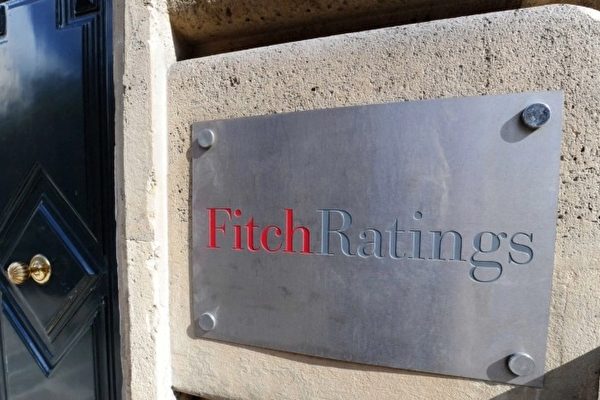Global credit rating agency Fitch Ratings, based in New York, expressed concerns about China’s financial situation. Earlier this month, while reaffirming China’s high A+ rating, Fitch Ratings downgraded China’s so-called “outlook” rating. This move followed a similar action by Moody’s Investors Service Ltd., another of the world’s three major credit rating agencies, based in New York, which had taken the same step in December last year.
As expected, the Chinese Ministry of Finance opposed this decision, claiming that China’s economy and financial condition are sound and have the potential for improvement. Over the past year and a half to two years, this column has documented and explained the serious economic and financial challenges facing China. It could be argued that the rating conclusions from Fitch Ratings and Moody’s have been quite lenient.
Fitch Ratings emphasized many of China’s economic and financial issues in their rating announcement. The most prominent among these is, of course, the real estate crisis in China and the extent to which this crisis has subdued the current sales and activities of this once dominant sector in the Chinese economy. The collapse of the real estate market has depressed property values, reduced household wealth, and thereby curtailed consumer spending. Overall, this crisis and its impact have severely weakened China’s overall growth potential.
Furthermore, what is causing more public concern is that the failure of real estate developers has eroded confidence in the Chinese financial sector, as many developers carry significant suspicious debts. The lack of trust on either side regarding the financial health obstructs China’s financial ability to support future growth. Fitch Ratings also criticized the Chinese government for delaying action on this crucial issue for years.
When discussing this dismal macroeconomic situation, Fitch Ratings focused on the fiscal health of the Chinese Communist Party (CCP) government, which is understandable. Fitch Ratings also pointed out that CCP local governments are facing massive debt difficulties. Even before the real estate market collapse in 2021, local governments were burdened with heavy debt loads, as the CCP government allowed local governments to finance large infrastructure projects using so-called “special-purpose bonds.”
Even as local governments struggle with debt burdens, the impact of the real estate collapse has deprived them of their primary revenue sources, making it even more challenging to repay debts. Fitch Ratings estimated that the debt burden of these local governments is close to $11 trillion. While this figure cannot be verified, it is noteworthy that some local governments are facing substantial difficulties in debt repayment, leading to cuts in public services.
The CCP government has just begun to adapt to this reality. To avoid adding more burdens to struggling local governments, the CCP government decided to issue its own debt to fund the latest infrastructure construction expenditures, likely aiming to stimulate the faltering economy. China plans to issue around 1 trillion yuan (about $139 billion) in bonds for infrastructure construction. The CCP regime plans to use so-called “ultra-long-term” bonds.
This decision indicates two points, both of which are not encouraging. Firstly, the CCP government does not expect immediate returns on its spending. Secondly, considering its budgetary problems, the CCP hopes to delay bond repayments as much as possible.
This mindset is not surprising. Although the CCP officially pegged this year’s budget deficit at 3% of China’s Gross Domestic Product (GDP), Fitch Ratings suggests that this figure is likely slightly higher, possibly exceeding 7%. Furthermore, the central government’s outstanding debt is expected to rise from approximately 56.1% of GDP last year to over 61% this year.
Regardless of how it is described or its source, this is not a rosy financial picture. As reflected in this column series, this situation is unlikely to improve significantly in the short term, especially considering the CCP’s ineffective response to the real estate crisis and the backlash from the US, Europe, Japan, and most other developing countries against China’s trade practices.
In fact, Fitch Ratings and Moody’s rating outlook on the Chinese economy in this instance only focused on future prospects, without downgrading China’s current rating. This may seem like a gesture of goodwill or more likely a political consideration. Nevertheless, China’s economic issues continue to mount, reshaping outsiders’ perceptions daily.

